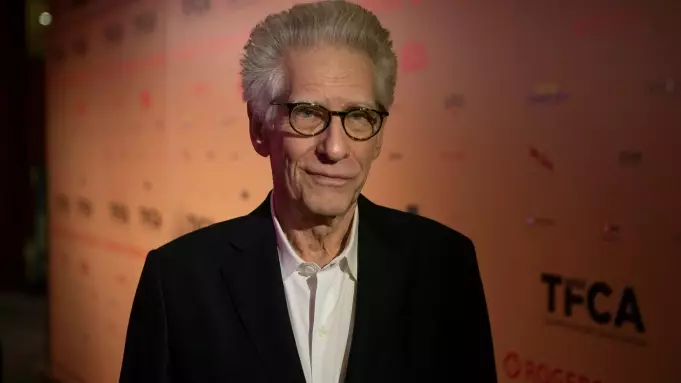In an age where technology catapults creative boundaries to dizzying heights, it is alarming to witness the backlash against films like *The Brutalist*. The condemnation of using artificial intelligence (AI) in filmmaking, as highlighted by the recent statements from David Cronenberg, reveals a deeper malaise within the industry—how clinging to tradition can hinder artistic evolution. Despite the occasional outcry, the use of AI should not elicit a moral panic; instead, it invites a discussion on how this tool can be embraced for creativity rather than condemned as a crutch.
Cronenberg’s Defense: A Stand Against Hypocrisy
Cronenberg’s defense highlights a critical irony that pervades Hollywood: while the industry evolves with technology, many still cling to outdated notions of authenticity. With prominent filmmakers accusing *The Brutalist* of relying too heavily on AI, are we not witnessing a form of gatekeeping within the art of storytelling? As its editor, Dávio Jancsó, explained, the AI utilized to enhance the film’s Hungarian dialogue is no different from the historical practices directors have employed to manipulate sound and voice. It’s hypocritical for those in the industry to vilify the innovative methods while ignoring the long-standing practices that paved the way for modern cinema.
AI: A Tool, Not a Threat
The controversy surrounding *The Brutalist* raises an essential question: Is AI an enemy or an ally in filmmaking? Critics might argue that integrating AI into the creative process undermines the human touch of acting and filmmaking, but we must take a step back and recognize that AI is merely a tool—much like a camera or CGI. It serves to enhance, not replace, the talents of actors like Adrien Brody and Felicity Jones, who invested countless hours perfecting their performances under the guidance of dialect coaches. To dismiss these advancements as artificial detracts from the hard work and emotional investment of the artists behind the project.
Playing the Blame Game: A Campaign Against Creativity
Interestingly, Cronenberg suggested the backlash might stem from rival Oscar contenders, painting the situation as a reflection of the competitive, cutthroat nature of Hollywood. If true, this notion is deeply troubling; it suggests that instead of championing innovation, some parties prefer to stifle it out of fear. Creativity should not dwell in a zero-sum game where success is defined by the elimination of competition. Rather, it needs to thrive in an environment that celebrates diverse methodologies and perspectives and fosters collaboration and exploration.
The Future of Filmmaking Lies in Embracing Change
As technology progresses, it’s vital for filmmakers to adapt and be forward-thinking rather than cautious and defensive. The rapid evolution of AI can be a courageous step toward reimagining storytelling and enhancing the viewer’s experience. The real scandal lies not within the tool itself, but rather in the refusal to engage with its potential to create richer, more complex narratives. The ongoing discourse around AI in film is not just about *The Brutalist* but about how we perceive progress in an industry traditionally resistant to change.


Leave a Reply